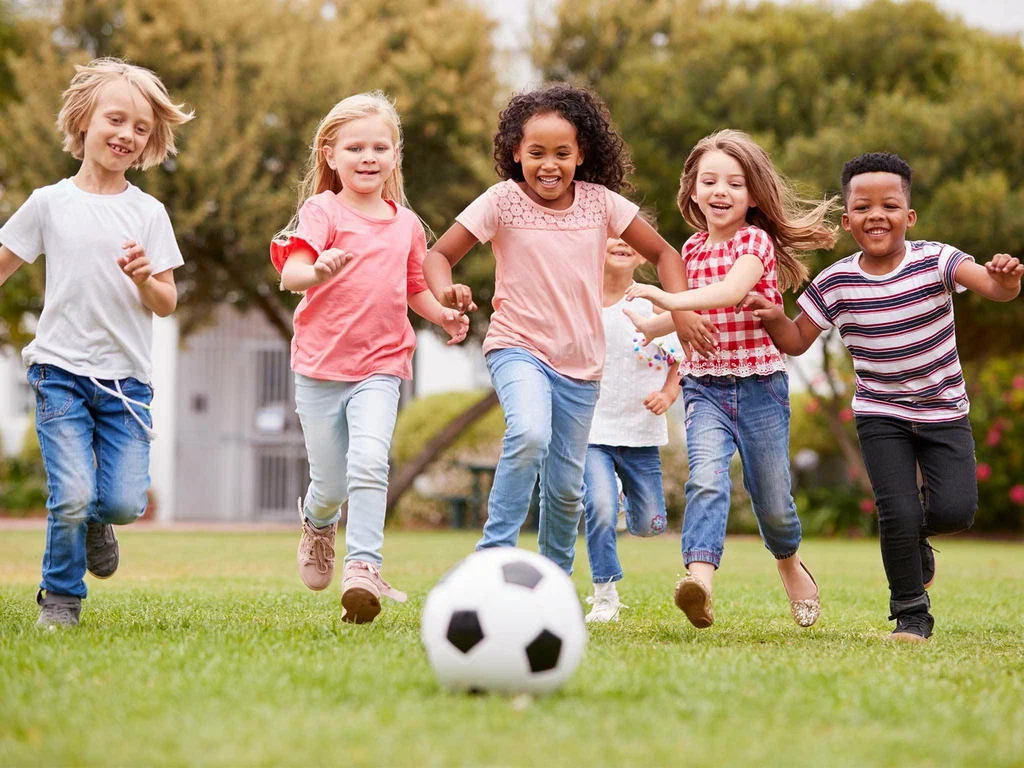Why Sports Play a Critical Role in Children’s Mental Health
Children today face increased academic pressures, screen time, and social challenges that can contribute to anxiety and depression. Physical activity, particularly through sports, provides a natural, effective way to protect and strengthen mental health. Programs from Youth Rescue Project integrate emotional support with physical activity, ensuring that kids not only stay active but also develop healthier minds.
The Science Behind Sports and Mental Health Benefits
Releasing Endorphins to Reduce Stress
When kids engage in physical activity, their brains release endorphins, chemicals that naturally elevate mood and reduce stress. This helps combat early signs of anxiety and depression.
Regulating Cortisol Levels
High stress often leads to elevated cortisol, which negatively impacts mental health. Sports help regulate cortisol levels, keeping children calmer and emotionally balanced.
Improving Sleep Patterns
Better sleep contributes directly to improved mood and reduced risk of depression. Kids who play sports fall asleep faster, stay asleep longer, and wake up more refreshed.
Supporting Brain Development
Sports stimulate neuroplasticity, encouraging brain growth that strengthens memory, focus, and learning skills, all of which contribute to mental resilience.
How Sports Help Prevent Anxiety in Kids
Channeling Nervous Energy Productively
Children who struggle with restlessness or worry benefit from physical outlets. Sports redirect this nervous energy into productive movement, leaving kids calmer and more focused.
Building Confidence to Reduce Social Anxiety
Participating in sports builds self-esteem through skill development and teamwork. Confidence gained in athletics often transfers to classroom and social settings, reducing social anxiety.
Establishing Consistent Routines
Routine helps children feel secure. Regular sports practice creates structure, which reduces uncertainty and helps manage anxious thoughts.
Providing a Healthy Distraction
Sports shift focus away from stressors, giving children a positive outlet where they can feel successful and engaged, breaking cycles of anxious rumination.
How Sports Help Prevent Depression in Kids
Creating Social Connections That Reduce Isolation
Depression in children is often linked to loneliness. Team sports and group activities provide built-in friendships and a sense of belonging.
Fostering Purpose and Achievement
Sports give kids measurable goals—learning a new skill, winning a match, or improving performance—that foster a sense of purpose and accomplishment, protecting against depressive symptoms.
Encouraging Positive Self-Image
Through sports, children learn to value their bodies for what they can achieve rather than how they look, which reduces risk of negative self-esteem and body-related depression.
Instilling Hope and Optimism
Every practice or game offers kids a chance to improve. These small, consistent wins create optimism, which is a powerful shield against depression.
The Role of Team Sports in Building Mental Resilience
Learning Cooperation and Teamwork
Team sports like soccer, basketball, or volleyball encourage collaboration. Kids learn communication, empathy, and leadership—skills that build social and emotional resilience.
Coping With Wins and Losses
Learning to handle both victories and defeats gracefully equips kids with coping strategies for life’s inevitable ups and downs.
Building Peer Support Networks
Teammates often become close friends who provide emotional support, helping children feel less alone during challenging times.
Reducing Feelings of Exclusion
Programs like those from Youth Rescue Project focus on inclusivity, ensuring every child feels valued, regardless of skill level.
How Individual Sports Support Emotional Growth
Building Inner Discipline and Focus
Sports like swimming, tennis, or martial arts foster self-control, concentration, and discipline, critical skills for managing emotions and stress.
Encouraging Personal Accountability
Kids in individual sports learn to take responsibility for their progress, which builds resilience and confidence in their abilities.
Offering Safe Spaces for Introverted Children
Not all kids thrive in team settings. Individual sports give quieter children opportunities to shine without the pressure of group dynamics.
Promoting Mind-Body Awareness
Activities such as gymnastics or martial arts emphasize mindfulness, helping kids connect with their bodies and regulate emotions.
Long-Term Mental Health Benefits of Youth Sports
Reducing Risks of Adolescent Depression
Children who engage in sports are less likely to develop depression in adolescence, thanks to healthier coping skills and stronger support systems.
Enhancing Academic Performance
Improved concentration and problem-solving skills from sports participation lead to better school performance, boosting overall self-esteem.
Establishing Healthy Lifestyle Habits
Children who play sports are more likely to maintain exercise routines as adults, which lowers risks of anxiety and depression long-term.
Building Resilience for Life’s Challenges
Sports instill a mindset of perseverance that prepares kids to handle stress and setbacks throughout their lives.
The Role of Coaches and Mentors in Supporting Mental Health
Encouraging Positive Reinforcement
Coaches who celebrate effort, not just wins, help children feel confident and supported.
Recognizing Mental Health Challenges Early
Mentors often notice behavioral changes that parents may miss, allowing for timely intervention when a child struggles with anxiety or depression.
Creating Safe and Inclusive Environments
With programs like Youth Rescue Project, kids experience safe, welcoming spaces that nurture both physical skills and mental health.
Teaching Emotional Regulation
Sports mentors guide kids in managing emotions during high-pressure moments, which translates into better coping strategies outside sports.
How Parents Can Support Their Children Through Sports
Avoiding Excessive Pressure
Parents should encourage participation without focusing solely on performance. Kids thrive when they feel supported, not pressured.
Celebrating Small Wins
Acknowledging progress, no matter how minor, boosts self-esteem and fosters resilience.
Encouraging Open Communication
Discussing experiences, frustrations, and achievements helps children process emotions and deepens family bonds.
Partnering With Mentors and Coaches
Working with supportive coaches in programs like Youth Rescue Project ensures balanced, holistic growth for children.
Youth Rescue Project: Creating Stronger Futures Through Sports
Programs That Prioritize Mental Health
Youth Rescue Project integrates mental health awareness with athletic development, ensuring every child’s well-being is supported.
Accessibility for All Families
Affordable, community-centered sports programs make it easier for all children to benefit from the mental health advantages of sports.
Inclusive Programs for Every Child
Regardless of background or ability, programs foster inclusion, diversity, and equal opportunity for participation.
Building Lasting Confidence and Happiness
The organization’s mission is simple: use the power of sports to help kids grow into confident, happy, and resilient individuals.
Final Thoughts: Sports as a Preventive Tool for Anxiety and Depression
Sports are more than physical exercise, they are a natural, powerful defense against anxiety and depression in kids. By building confidence, fostering social support, and instilling resilience, athletic programs prepare children to thrive emotionally.
Through organizations like Youth Rescue Project, families can access programs designed to create healthier, happier futures. Supporting kids in sports today means investing in their lifelong emotional well-being tomorrow.

